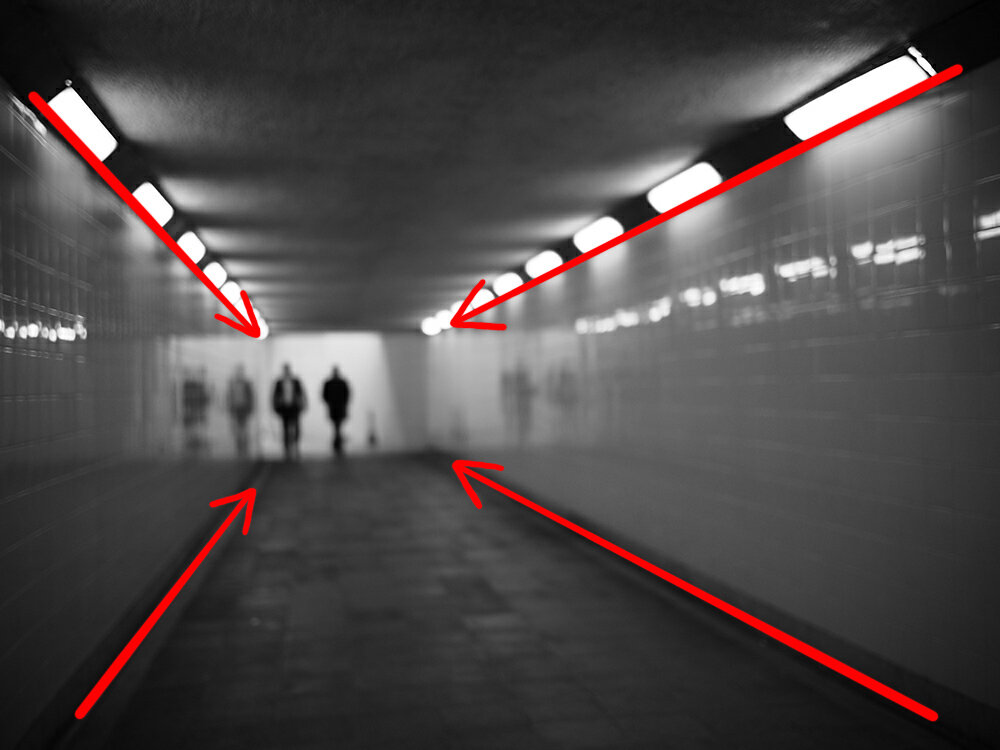Your compositions will get very good very fast. Leading lines is an image composition technique that can be used to create powerful and impactful photographs.

How To Use Leading Lines In Your Photography
People have a cognitive tendency to follow lines as they attempt to understand what they are seeing.

. Aug 10 2020 Leading lines in photography direct the viewers attention to other key components. Sometimes they dont lead the eye out of the frame at all but cause the eye to circulate around the subject. Whenever people look at an image our eyes are naturally.
Leading lines are used to draw the viewers eye through a photograph. How easily or how difficult this task affects their feelings about the composition. They are one of the most effective and under-utilised compositional tools in photography.
Leading lines are great for producing several effects. Leading lines are compositional elements in your photo that help direct the viewers eye as they see your work. Because horizontal leading lines often stretch across the entire width of the image they tend to be used when shooting with a wide-angle lens.
So start thinking about leading lines wherever you go. Leading lines is a visual composition technique that makes use of lines to direct the eye. A leading line only has its function because of how a photographer chooses to use it to lead a viewer as they look at a photo.
Leading lines can be almost everywhere you look from a. Mastering this technique can be advantageous especially when it comes the crowded photography field and trying to stand out in the pack can be difficult. Practice finding leading lines in the chaos of everyday life.
Leading lines can be natural such as a river or valley or man-made such as a road or fence. Leading lines are also used to draw your eye to a focal point in the shot that you would like to highlight. In many cases lines that stretch off into the horizon are used to.
Leading lines refers to a technique of composition where the viewer of your photos attention is drawn to lines that lead to the main subject of the image. What are the leading lines in photography. So what are leading lines in photography composition.
Leading lines may be seen anywhere no matter where you reside or. Creating leading lines is a conscious effort to think about framing a photograph that takes advantage of lines in a scene. When done well leading lines creates a mood and changes the viewers experience by giving the image depth and making things feel more dynamic as they move through the lines.
Vertical lines tend to communicate power and hierarchy. Guiding the viewers eyes through the. When someone approaches an artwork that is new to them their eyes travel over the composition to take it all in.
As a result by. The edges of buildings windows and paving patterns can all create leading. Horizontal leading lines are often found in nature and landscape photography.
Leading lines in photography are what you make them. They start somewhere along the perimeter of the image and 26. In simple words leading lines in photography is a compositional method that features line shapes a road river bench etc.
What is a leading line in photography. Leading lines are lines that appear in a photograph that have been framed and positioned by the photographer to draw the viewers eye towards a specific point of interest. The leading lines technique is using elements in your environment to create a visual pathway to your subject or focal point.
Roads and rivers often act as strong leading lines in a picture as well as a row of something that moves off with perspective. Leading lines are the lines in a photograph that lead the viewers eye in and then out of frame. As such leading lines can be used to give a composition a sense of balance or to lead the eye to a particular subject.
In such a way the viewers attention is drawn to the main subject in the frame. When you draw an arrow where does it point thats your primary focus isnt it. The viewer is guided through a composition by leading lines.
Anything with a well-defined edge can be used as a leading line. These lines can be very direct and 25. Leading lines direct the viewers attention to particular parts of an image.
They are intentional or unintentional natural lines created in the space of the photograph and are used to create a visual narrative in the composition. A similar effect is given through the leading lines in a picture. They can be used to tell a story place emphasis and draw a connection between two objects.
Leading Lines Everything You Need to Know Importance of Leading Lines in Photography. Leading lines are the key compositional elements that carry our eye through a photograph. Why do we see lines in images.
Leading lines in photography are lines that lead the eye of the viewer through your image and often directly to your subject. Some Examples of Leading Lines. A leading line paves an easy path for the eye to follow through different elements of a photo.
Leading lines can be defined as the lines that help to draw the viewers attention to the main areas main. Leading lines can be horizontal vertical diagonal or curved. Leading lines are lines within the image that lead the viewers eye to a focal point or create an illusion of distance.
By determining the point of interest leading lines create dynamic compositions. Leading lines photography at home. It is a composition technique where you are using the lines in the background or foreground to direct the viewers attention to the subject.
In using such compositional techniques your pictures will be more interesting.

10 Great Ways To Use Leading Lines In Your Iphone Photos

How To Use Leading Lines In Photography 2022 Masterclass

7 Leading Line Photography Composition Tips

How To Find Leading Lines As You Travel Olympus Cameras Audio Binoculars

Leading Lines Everything You Need To Know Nfi

How To Use Leading Lines In Your Photography

Leading Lines In Photography The Essential Guide

Leading Lines In Photography Nico Goodden Urban Photographer Digital Photography Learning
0 comments
Post a Comment